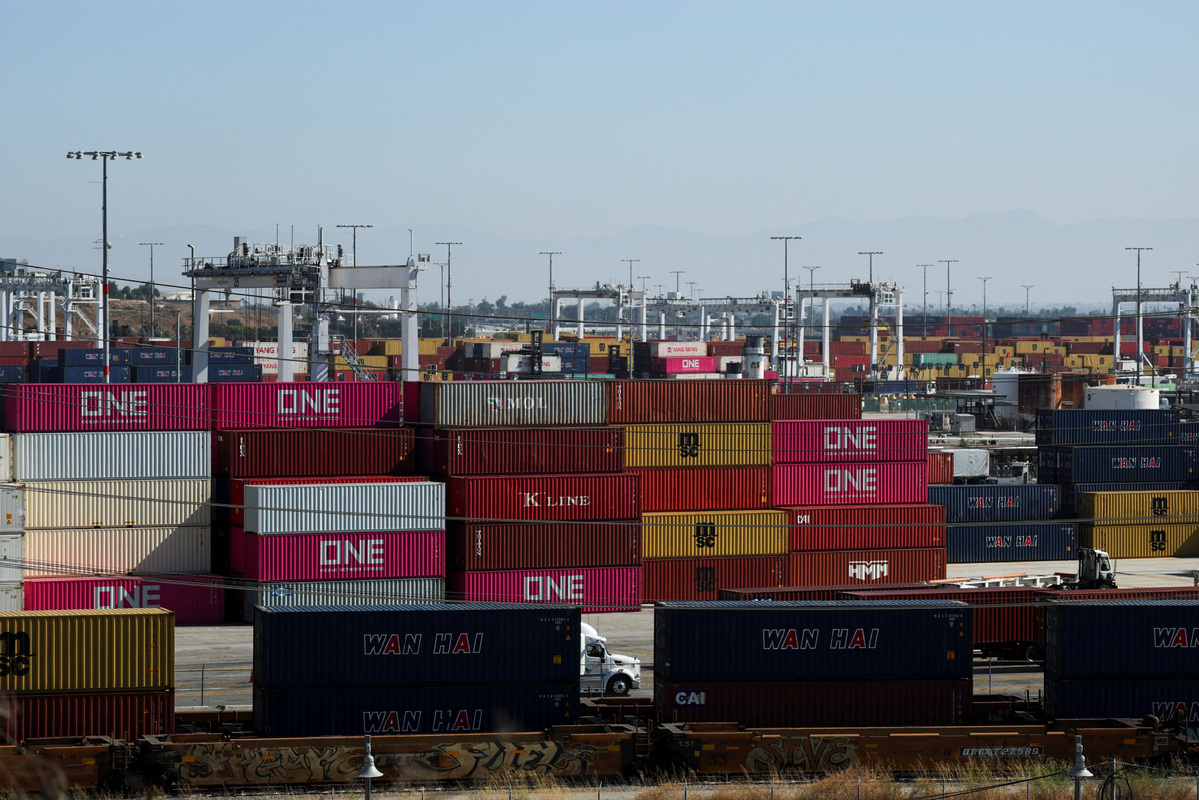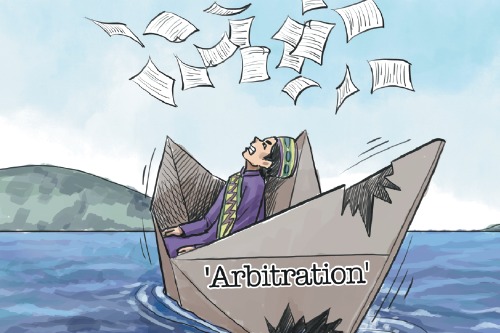US tariff war a wild goose chase: China Daily editorial


The United States' latest tariff threats against trading partners, including the European Union, have once again highlighted its exploitative attitude.
For a long time, the US has cited "security" as a reason to restrict exports of its advanced semiconductors and other high-tech products to many countries from which it imports natural resources and consumer goods. Were it not for this, the US' so-called trade deficits would not have been the size they are today.
And rather than other countries robbing the US of jobs, as the Donald Trump administration claims, it is the high cost of labor in the country that means it cannot compete with emerging market economies for manufacturing jobs. Today, the service sector accounts for more than 70 percent of the US' economy.
The sizable antitrust digital tax that both the European Union and Canada propose to levy on large US multinational tech companies serves as a reminder of the huge surplus in trade of services the US enjoys from its trade with the rest of the world that it intentionally excludes from the calculation of the US' trade balance.
That the US has been able to sustain its "trade deficits" is because the world is compelled to pay the "price" for the US debt, as the US reaps the growth dividends of the whole world by controlling the US dollar's flow worldwide through adjusting its interest rates.
The US' so-called debt pressure is essentially caused by a structural imbalance between government spending and revenue. A considerable part of the state's spending goes to the rich in the forms of government contracts, procurement and investment that are actually approved by their agents in the legislature and government, who also ensure very lenient tax policies for the wealthy. That model explains the widening income gap in the country.
All that being said, the US cannot realize any of the objectives it has set — addressing its "trade deficits" or rebalancing the economy through easing government debt and bringing back manufacturing jobs — by waging its tariff war against the rest of the world. It certainly knows this. So the tariff war is nothing but a tactic to try and cover up the true problems of the US, which will only hurt the country itself.
Hyping up its "reciprocal tariffs" as a means to protect the US people helps the US administration sustain the US model, which runs on the poor footing the bill for the rich and attributing its acute institutional challenges to others.
As for the rising living cost caused by the "reciprocal tariffs", the administration plays it down with feel-not-so-bad bromides: "Well, maybe the children will have two dolls instead of 30 dolls. So maybe the two dolls will cost a couple bucks more than they would normally".
But for the rest of the world the harmful effects of the "reciprocal tariffs" can't be brushed off so easily. That explains why the US administration has again postponed the deadline for trade deals with its trading partners from July 9 to Aug 1, as few have been forthcoming. Even for those economies that it says it is nearing a "deal" with, what the Trump administration has secured is far from being a comprehensive and binding trade pact.
Trump announced on Saturday that 30 percent tariffs will be imposed on the EU and Mexico as of Aug 1, according to letters addressed to the EU and Mexican leaders, which were posted on his social media platform. He has sent more than 20 similar letters to other US trading partners, including Canada, the Republic of Korea, Japan and Brazil, with blanket tariff rates ranging from 20 percent up to 50 percent.
The responses to the US' letters can only be called predictable — the parties concerned are open to trade talks with the US for an agreement before the deadline, but won't rule out taking countermeasures. Bernd Lange, chair of the European Parliament's Committee on International Trade, described the US letter as "both impertinent and a slap in the face" after weeks of negotiations.
The US' attempts to exploit tariffs to subvert the existing international economic and trade order are to prioritize its own interests above the global common good. But these endeavors are doomed to failure.
It can be seen that the tariff rates the US threatens have become incrementally lower, though still exorbitant, and the "period of grace" incrementally shorter, and its intimidation increasingly barefaced, while the responses of those targeted have become more predictable. The odds on the US winning the tariff war are slim.


































